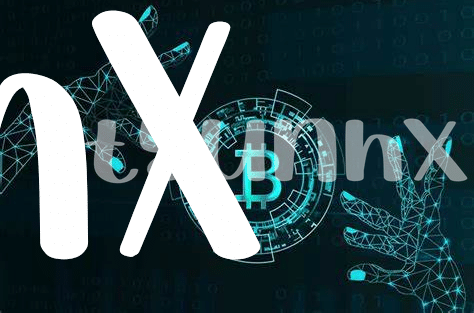🌐 Understanding the Basics of Bitcoin and Blockchain

Imagine a world where you can send money across the globe without needing a bank. That’s the magic of Bitcoin, a form of digital cash. It’s like sending an email, but instead of words, you’re sending money. How does this happen? Through something called blockchain. Think of blockchain as a book that everyone can read, but no one can erase anything from. Every time someone sends or receives Bitcoin, that transaction is recorded in this book. This way, everything is transparent, and it’s very hard for anyone to cheat. Here’s a simple table to break it down:
| Term | What It Means |
|---|---|
| Bitcoin | Digital money you can send or receive over the internet. |
| Blockchain | A public record of all Bitcoin transactions, like a transparent, unchangeable ledger. |
This simplicity ensures that Bitcoin offers a new way of thinking about money, free from the traditional banking system, allowing people to transact directly with each other.
🔍 Privacy in Bitcoin: What Does It Mean?
When we talk about privacy in Bitcoin, it’s all about who can see what you’re doing with your digital coins. Imagine you have a notebook where you write down every transaction you make – who you paid, how much, and for what. Now, Bitcoin does keep such a record on a huge digital ledger called blockchain, but the thing is, your name doesn’t appear next to your transactions. Instead, what shows up is something like a super-secret code that represents you. However, this doesn’t mean no one can figure out it’s you behind those transactions. If someone is really determined and has the right tools, they can start connecting the dots back to you. It’s a bit like having a puzzle; on its own, each piece doesn’t say much, but put them all together, and a picture emerges. For those looking into making their Bitcoin dealings more private and secure, exploring additional measures is key. Understanding this balance and finding ways to maintain privacy can be complex, but it’s not impossible. For more insight on keeping your Bitcoin transactions secure, check out https://wikicrypto.news/navigating-bitcoin-security-best-practices-for-your-wallet.
🎭 Anonymity in Bitcoin: Is It Possible?

When we dive into the world of Bitcoin, it’s like entering a bustling, vibrant city. The streets are busy with transactions, but everyone wears a mask. At first glance, these masks might seem to give everyone complete secrecy, making you think, “Can no one really know who I am here?” Well, it’s a bit complicated. Despite the masks, or in Bitcoin terms, the unique addresses that swap coins, there’s a catch. Every transaction, every move you make in this city is recorded in a giant, unchangeable ledger for all to see. Yes, your mask keeps your identity a secret, making your name or where you live unknown. But here’s the twist: if someone gets really curious and starts to follow your footsteps, connecting the dots between transactions, they could potentially figure out who’s behind the mask. So, in this bustling city of Bitcoin, true anonymity, the kind where no one could ever trace your steps back to you, turns out to be more of a challenge than you might first think. However, this intriguing blend of secrecy and transparency has created a playground for both the tech-savvy innovator looking to protect their privacy and the detective eager to uncover the story behind the mask.
⚖️ Comparing Privacy and Anonymity: the Key Differences

When we dive into the world of Bitcoin, we encounter two terms quite often: privacy and anonymity. Though they may seem similar at first glance, the difference between them is crucial. Privacy, in the realm of Bitcoin, means that your personal information is hidden. Imagine sending a letter with a disguising envelope; the receiver knows it came from you, but no one else can peek inside. Anonymity bumps this idea up a notch. It’s like sending that letter but without a return address or any hint of your identity – not even the receiver knows it’s from you. This distinction is important for those navigating the waters of cryptocurrency investments, looking to understand what determines bitcoin’s price security concerns.
Continuing on this journey, one might wonder how to strike a balance between these two or decide which route to take. The digital world of Bitcoin provides options for both, yet understanding the strengths and limitations of each can guide users in making informed decisions. Privacy can be seen as a shield, protecting your transactions from prying eyes, while still maintaining accountability. Anonymity, however, offers a cloak, making transactions indistinguishable. Knowing when and how to use these options can significantly impact your Bitcoin experience, whether you’re buying your first fraction of a coin or managing a hefty portfolio.
🛡️ Enhancing Your Bitcoin Privacy: Simple Steps
When it comes to Bitcoin, think of privacy as a cozy blanket keeping your financial activities snug and out of the chilly winds of the online world. Preserving this privacy might sound like wizardry, but it’s something anyone can do with a few simple steps. First off, consider using a new Bitcoin address for each transaction. This is like using a new alias every time you embark on a digital adventure, making it harder for anyone to trace your steps back to you.
| Step | Action | Benefit |
|---|---|---|
| 1 | Use a new address for each transaction | Makes tracking your transactions more difficult |
| 2 | Opt for privacy-focused wallets | Enhances security and operational privacy |
| 3 | Consider mixing services | Blurs the link between your transactions and identity |
Moreover, diving a bit deeper, privacy-focused wallets add an extra layer of security, acting as guardians of your personal transaction details. For those feeling daring, mixing services toss your Bitcoin into a virtual blender, obscuring the paths leading to and from your wallet. The idea is to become a ghost in the machine, leaving behind no trace for prying eyes to follow. These simple yet effective strategies ensure that your Bitcoin journey remains yours and yours alone, fortifying your footprint against the digital wilderness.
🕵️♂️ the Future of Bitcoin: Privacy Vs. Anonymity Trends

Investing in digital currencies like Bitcoin has always been a game of privacy and anonymity, but the future seems poised for an interesting turn. The way Bitcoin is designed, it inherently supports some level of privacy, but absolute anonymity? That’s a tough challenge. However, as technology evolves, so do the ways in which this privacy and anonymity are understood and protected. We’re entering an era where innovative solutions could redefine these concepts for Bitcoin investors. Expect to see more sophisticated tools and techniques aimed at safeguarding personal information and transaction details, all while ensuring a seamless, secure investment experience.
On the flip side, this ongoing battle between privacy and anonymity is not just about technology. It’s about keeping pace with regulatory changes and societal expectations. As regulators around the globe sharpen their focus on digital currencies, the pressure is mounting on Bitcoin networks and users to adopt practices that ensure transparency and security. This balancing act between remaining private and compliant will shape the future landscape of Bitcoin investments. For those keen on diving deeper into this subject, understanding what is bitcoin investment strategies can offer valuable insights into navigating these waters, blending caution with the undying quest for privacy and anonymity in the digital age.
